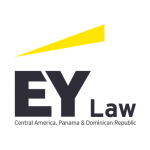In the absence of a crisis and in a business-as-usual environment, individuals, organisations, and their societies do not in general desire or need to test the limits of what is possible, and nor are they encouraged to. Instead, as general belief dictates, if something is not broken, why fix it? During an emergency however, there is the room - and sometimes the need - to be bold.
While advancement can never justify any amount of human suffering, the fact is that during and after any health, economic, social or military crisis, humanity is forced to re-examine itself and come up with new tools and skills to manage the consequences, either to prevent the crisis from happening again or, simply, to make use of what was learned during the crisis.
In testing times, when normality is changing quickly and when the unexpected is the only thing that we can be sure of, fast answers are required. More likely than not, those answers will be found ‘outside the box’.
|
|
While Costa Rica has all the ingredients necessary to become an important hub for the development of fintech, the country has yet to find a way to take full advantage |
|
|
We can see this happening today. All over the world, most businesses and industries have been forced to reinvent themselves to survive Covid-19 and the resulting economic crisis.
One significant change that has swept through the Costa Rican economy is that e-commerce platforms, home delivery (meaning the delivery of practically everything, not just food), online banking and e-payments, contactless credit cards, teleconferencing and working from home, to name just a few (services that were in an embryonic state, developing slowly or even non-existent before the pandemic), began to be implemented in record time (so to speak…), even before a proper regulatory framework was in place or accessible to businesses, employers, employees and the general public.
These examples show that when the circumstances are right or demand it, when the market is ready to accept new ways of doing business, when organisations are willing to implement those changes (especially when their survival depends on it) and when society, including the government, regulatory entities and economic players, recognises that change is required, most stumbling blocks can be overcome.
Can that be the case for fintech in Costa Rica (and, why not, in the whole region)?
A recent study conducted and published by the Interamerican Development Bank (IDB) and Finnovista (“FINTECH en Costa Rica: hacia una evolución de los servicios financieros”, Finnovista, 2019) shows that while Costa Rica has all the ingredients necessary to become an important hub for the development of fintech, the country has yet to find a way to take full advantage and create the regulatory environment for it to happen.
Although the IDB study was conducted prior to the pandemic and the data underpinning it might have been affected by the crisis, for the purpose of this article we will focus on the trends shown in the study rather than on the actual percentages and/or figures.
IDB study: all the ingredients
While the number of fintech start-ups in Costa Rica is small and their market penetration is still limited, the figures have been consistently on the rise for the last two years and it is very likely that will continue to do so, even after this pandemic-induced economic environment.
Fintech companies and platforms have been shown to be extremely beneficial in reducing the cost of financial transactions and in bringing financial tools to segments the population that would otherwise not have access to them. Both of these are equally important to businesses and financial institutions, as well as to the end-users.
The percentage of the Costa Rican population that has access to a bank account is one of the highest in Latin America. The percentage of the population that uses some sort of financial product (saving accounts, loans and credit or debit cards) is also very high and the percentage of individuals that received or made e-payments in Costa Rica over the last year is greater than the rest of Latin America.
|
|
To take advantage of the existing ecosystem, Costa Rica needs to find that perfect balance between safety and efficacy. Just like a vaccine… |
|
|
Although a technology gap still exists, the relevance of technology in the life of the Costa Rican population is above average for the region and the use of mobile cellular technology is widespread in the country. The number of mobile cellular lines per inhabitant, a key statistic for the fintech industry, was 179 lines per 100 inhabitants in 2017; and these figures have also been consistently increasing.
When put together, the degree of financial and technological penetration shows that the market and the tools are there to support the expansion of fintech in Costa Rica. But are start-ups, founders and developers ready? Is the Costa Rican ecosystem ready to find, attract, support and finance these efforts?
Costa Rican entrepreneurs have shown themselves to be creative and capable, and - as difficult as it is to be measure and quantify it - Costa Rica is arguably one of the countries with the most technological entrepreneurship growth in Central America, if not the frontrunner.
Financing for new start-ups and ideas may be incipient, especially when compared to more sophisticated ecosystems, but it is present. It is true that the government’s programmes need to be strengthened and that the network of venture capital investors (whether angel, seed or institutional) is not as deep as the market may wish; yet it does exist, it is active and there is a healthy exchange between new investment opportunities and investors.
So, where does the actual challenge lie? In our opinion, it is in regulatory environment.
What is a sandbox?
Costa Rica does not have any specific fintech regulation nor is there a dedicated regulatory entity. This is probably the missing ingredient since, to a greater or lesser degree, the development of a robust fintech industry requires a unique regulatory framework.
It has to be strict and rigorous enough to convey certainty and confidence to all the players, financial institutions and end-users alike; but it also needs an adequate amount of flexibility to allow the fintech start-ups to grow and - if needs be - to pivot as and when required, all within the boundaries of the regulatory framework.
In order to take advantage of the existing ecosystem, Costa Rica needs to find that perfect balance between safety and efficacy. Just like a vaccine…
Other countries have been successful in first creating the right environment for the creation and improvement of a vast and diversified array of fintech start-ups and second, at the same time, allowing those start-ups to offer their technology to the financial institutions and end-users, with the degree of trust and reliability required law, by establishing a two-tier structure:
A sandbox level, where fintech start-ups can grow and mature; and
A traditionally regulated financial market where fintech companies must compete once they graduate from the sandbox.
Now, what is a “sandbox”? Literally, a sandbox is where kids play and experience. Today, the significance of this word has expanded, nonetheless keeping the same spirit. With regards to fintech, a regulatory sandbox is a framework set up by a financial sector regulator to allow small scale, live testing of innovations by start-ups or similar companies in a controlled environment.
It is, therefore, a proving ground, directed and supervised by an administrative entity, where start-ups and companies can test their products with limited or complete exclusion from certain regulations, but always under the regulator's supervision.
The sandbox has a few goals:
To make sure that the escalated and rapid pace of development of fintech companies is following certain approved guidelines;
To create a space for advancement for rising start-ups that may have been left behind by an inflexible administrative system;
To allow regulatory agencies to have up-to-date and accurate information on fintech products and, afterwards, control and maintain buyer assurance for those companies that make the cut and move to the open market.
The idea of a sandbox was first conceived in the United Kingdom in 2015. From that point forward, different nations have actualised it: Australia, Hong Kong, South Korea, Holland, Singapore and Switzerland are all acceptable understudies as far as administrative advancement and have their own sandbox.
However, most countries in Latin America - Costa Rica among them - have a history of being highly regulated. The financial sector is not the exception to the norm, but the rule…
Missing pieces
Costa Rica has two legs of the bench in place. The technology is ready, and capital is available. However, to make the most out of the existing conditions, certain regulatory decisions, such as the above described two-tier system, will have to be made to create the proper environment for fintech to grow and develop.
|
|
Costa Rica might very well be the next fintech success story in Latin America |
|
|
Costa Rica might very well be the next fintech success story in Latin America, a place in which new start-ups and established financial institutions test and combine their proposals and products, thus creating new job openings and energising the economy. However, to do this the country must be capable of swiftly promoting the changes required to exploit the opportunity.
If the country wants to benefit from the opportunity, it must create, support and promote strategies to articulate the endeavours of all players.
Is Costa Rica up the challenge? Is it ready to seize the opportunity?

Freddy Fachler
EY Central America
San José, Costa Rica
W: www.ey.com
Freddy Fachler is responsible for the operation of “seed by EY Central America”, a new interdisciplinary service line in emerging and innovative niche markets, including VC, start-ups and impact investing. In recent years he has provided legal advice to early-stage start-ups and structured VC investment models, as well as participated and investing in seed capital financing rounds.
Prior to joining EY Central America, Freddy was a partner in a leading regional law firm, practicing for 25 years and focused in the areas of corporate law, banking and financial, real estate and complex transactions. He is also a venture partner in Carao Ventures, a regional early-stage accelerator and venture capital firm.
Freddy is a law graduate from the University of Costa Rica, holds an LLM from Harvard Law School and sits on the board of several companies and private organizations.

